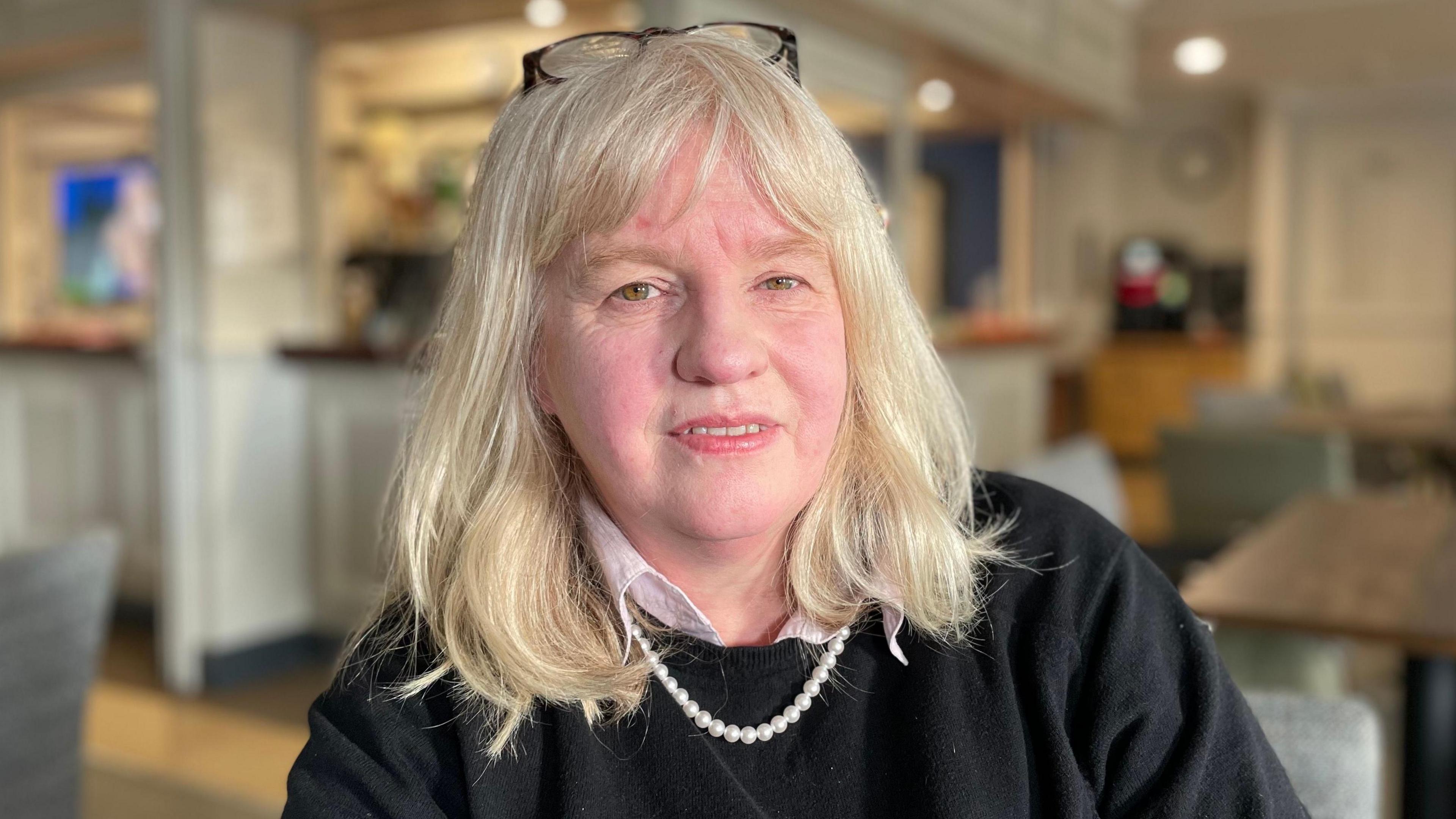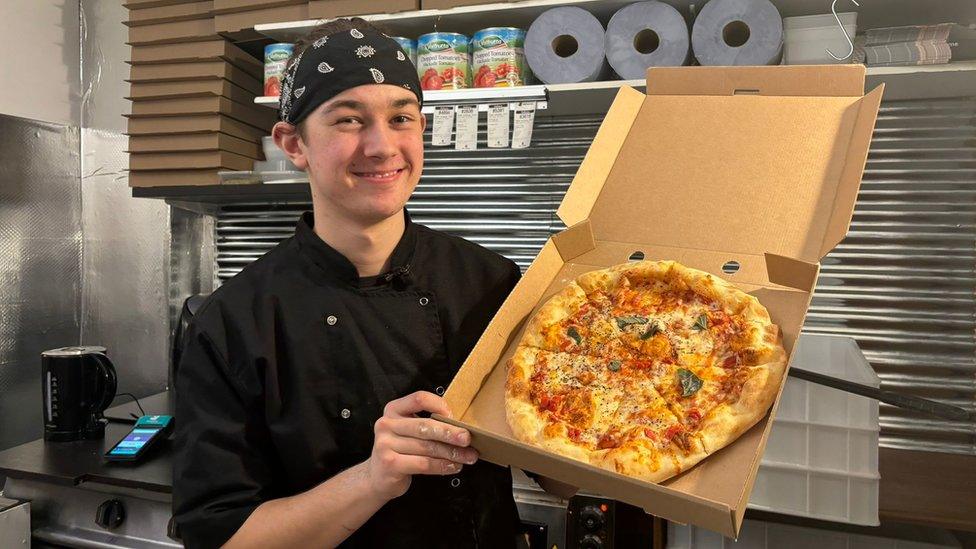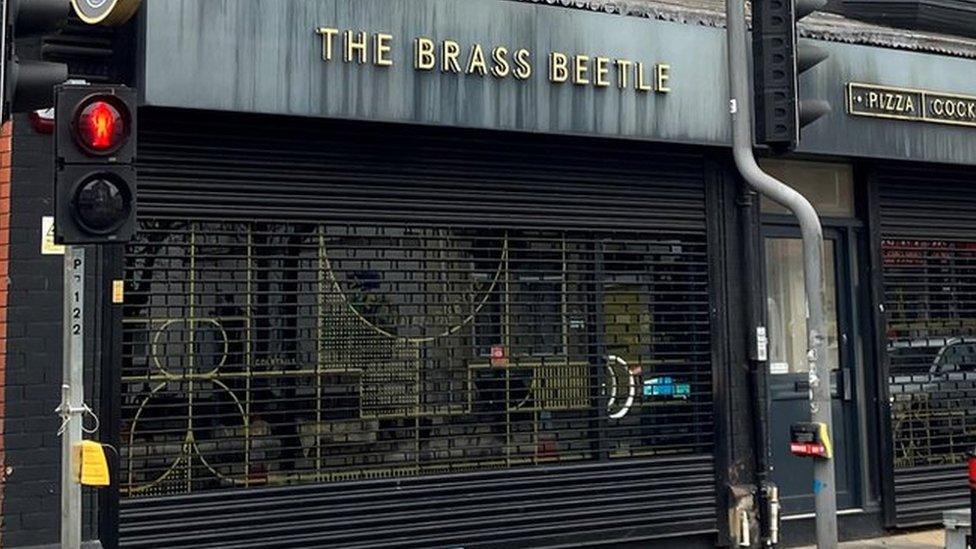Restaurants reduce hours and cut staff to save costs

Restaurant owner Nicola Martin says she has to be tight on staffing hours
- Published
Pubs and restaurants must reduce opening hours, cut down on staff and settle for small profits to stay afloat, owners have said.
Since the pandemic, the industry has faced high energy bills and increased food and drink prices and next month, businesses will see a reduction in support from the Welsh government with taxes.
But those challenges have not stopped some from starting new ventures.
The Welsh government said it was doing all it could, with the resources and powers available, to provide support.
Hospitality businesses offer perks to lure staff
- Published15 January 2023
Plaid call for U-turn on business rate tax hike
- Published16 January 2024
Rising costs see string of restaurants close
- Published13 January 2024
“We started the company in the height of the pandemic… it’s gone from strength to strength," said Nicola Martin, director of Food by Sean in Swansea.
But she says their latest venture - Môr restaurant in Mumbles - is making a small profit.
“We don’t increase our prices to match inflation at the moment. It's a sacrifice the business has to make to stay afloat.
"It’s about being extremely tight on staffing hours.
“It is a worry but we have to ensure that we’ve got a good product so people keep coming back.”

Debbie Durham says it has been a busy first month for the business
Rok restaurant in Mumbles opened last month, and general manager Debbie Durham said she constantly keeps an eye on costs and overheads.
“We open on a Thursday to Sunday,” she said.
"People can also have a selection of small plates, so you don’t have that big bill at the end.
“It’s just constantly, from a management point of view, about keeping an eye on all the costs and overheads.
"Staffing too, the minimum wage is going up again.
"Those challenges are there for everybody."

Former pub owner Rhian Davies from Cadoxton had to close the business last month due to rising costs
Swansea has seen 25% of its venues closing since the pandemic, according to figures from trade body UKHospitality.
Its Wales branch has called for the Welsh government to reverse its decision to reduce business rates support from 75% to 40% in April.
The imminent reduction in support was one reason why Rhian Davies, a former pub owner from Cadoxton near Neath, had to shut her business.
“Last month, I had to give the keys back. We had no choice,” said Rhian.
“Electric had gone up, it. Was about £1,600 a month. The rent was £800 plus a week.
“We couldn’t go on any more.”
Hospitality expert Robert Bowen from Cardiff University said companies must adapt their business model to survive within the hospitality sector.
"Of course, there are problems in terms of money and it's very difficult to have help and support," he said.
"Business rate relief cuts will be difficult in April... but we've had probably the most difficult time for years now. So we do think the future looks better."
A Welsh government spokesperson said: “We are very aware that the ongoing cost-of-living and cost-of-doing-business crises continues to present difficulties for small and independent businesses in all sectors across the country.
“We provide a range of permanent non-domestic rates reliefs, worth £250m annually and fully funded by the Welsh government.
"This builds on the almost £1bn of support provided in rates relief schemes to these sectors since 2020-21.”
- Published5 March 2024

- Published13 January 2024

- Published19 December 2023
